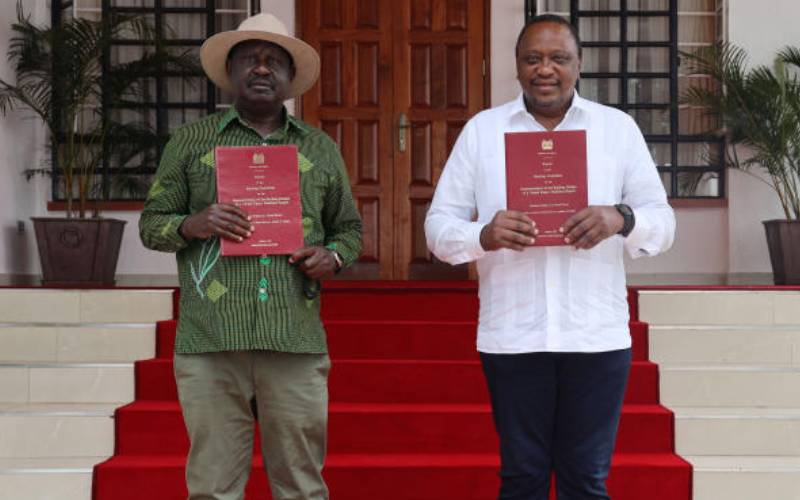×
The Standard e-Paper
Stay Informed, Even Offline

President Uhuru Kenyatta (left) with ODM leader Raila Odinga during the presentation of the Building Bridges Initiative (BBI) report at Kisii State Lodge. [PSCU]
Tomorrow is D-Day for the Building Bridges Initiative to amend the Constitution as seven Court of Appeal Judges decide the fate of a document likely to make or break the country’s political destiny.